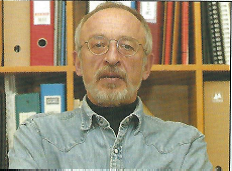 Addiction and addiction recovery are most often portrayed in the form of highly personal stories, but vulnerability to addiction and efforts to recover unfold within life-transforming or life-ending contexts. I have tried through many of my writings to illuminate these environmental influences and was struck in my recent interview with Dr. Phoebus Zafiridis his.rticulation of how physical, political, economic, cultural, and professional environments influence addiction and addiction recovery. For those'readers unfamiliar with the work of Dr. Phoebus Zafiridis, he is a social psychiatrist and founder of the therapeutic community ITHAKIAnd the Self-Help Promotion Program of the Department of Psychology at the Aristotle University of Thessaloniki (2000) in Greece.
Addiction and addiction recovery are most often portrayed in the form of highly personal stories, but vulnerability to addiction and efforts to recover unfold within life-transforming or life-ending contexts. I have tried through many of my writings to illuminate these environmental influences and was struck in my recent interview with Dr. Phoebus Zafiridis his.rticulation of how physical, political, economic, cultural, and professional environments influence addiction and addiction recovery. For those'readers unfamiliar with the work of Dr. Phoebus Zafiridis, he is a social psychiatrist and founder of the therapeutic community ITHAKIAnd the Self-Help Promotion Program of the Department of Psychology at the Aristotle University of Thessaloniki (2000) in Greece.
Below are three excerpts from my interview with Dr. Zafiridis.
I believe that policy makers over the last decades, in collaboration with the dominant scientific trend, have been trying in every possible way to avoid any association of growing psychosocial problems with the socioeconomic environment. The reasons are obvious. Such a correlation would imply a demand for political and social change. Therefore, manipulation of research in the specific scientific field is an essential condition for the maintenance of the status quo. The research in psychology and psychiatry that is unaffected by political or economic interests can illustrate the importance of transparency, social justice, social coherence, and decreasing inequality to the mental health of citizens.
I do believe that psychotherapeutic procedures would make more sense if they related people's personal psychological problems to the prevailing social conditions and promoted personal as well as social change. For it is self-awareness and the understanding of one's environment that make citizens claim their right to participation in political decisions that determine the quality of their lives. That is mature political action. This is the emancipatory version of psychotherapy, as opposed to the dominant manipulative version, which is content with appeasement and temporary relief of the symptom. This symptom is considered to be a very personal experience in modern societies. It is treated as a problem of separate individuals and most of the time is classified as a new disorder by a "neutral" scientific community, supported by the pharmaceutical industry. This is why psychology and psychiatry should investigate and address the social and cultural dimensions of personal problems, instead of covering them up.
dominant Psychology and Psychiatry today support the people in power. They conceal facts that would help citizens realize the true nature of their problems and urge them to fight for social change. This is not only achieved by constructing diagnoses and nosological theories to explain people's misery and suffering. It is achieved by the "psychologization" of everyday life, with the support of the television, popular media and multiple pop psychology publications. I have had enough of listening to personal dramas that center around a lack of meaning and emptiness; failed friendships, romances and relationships; financial and professional failures; deep sorrow caused by a pet's psychological problems; and problematic parental relationships, which are used by 40 or 50 year-old people as excuses for their misery, or even for the family drama caused by the inability to afford a summer house, etc.And all this, at a time when our politicians are piling refugees from Syria into tents and unheated buildings, and people right next door can't have enough food to survive the day. We avoid looking at what's going on right next to us, ignoring the suffering that exists around the world. The more we focus exclusively on ourselves, the more we ignore other people's problems, and hence, the greater our misery seems. This is the price to pay for egoistic behavior.
Those wishing to read the full interview may click HERE.